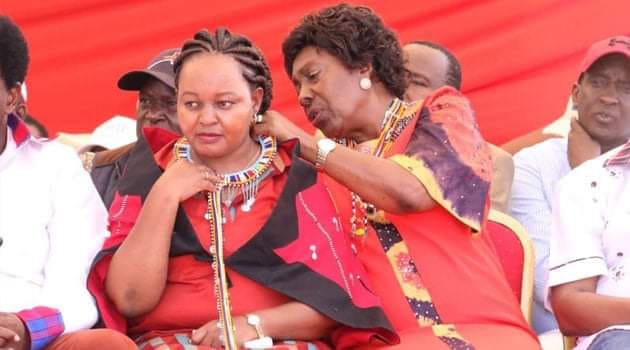I was barely 10 years old when it happened.
I remember everything – how the crowd chanted and booed as a female politician who was at the height of her campaign rushed into her car and fled. It was my first time seeing violence directed at a woman in politics.
Even though it was not in the form of punches and blows, I was scared and confused. The year was in 1997. I was returning home from school when I bumped upon Charity Ngilu’s campaign trail in the market.
She was vying for presidency and was desperately trying to convince voters that time had come for a woman to lead the nation.
Where is your husband
As she listed the many gains in her manifesto, someone from the crowd shouted: “Where is your husband?”
The question must have caught her off guard, because I remember her hesitating and keeping quiet for a while.
The crowd went wild with laughter. She tried to speak but the “where is your husband?” chants got louder.
Then the boos started; punctuated by the “show us your man” chants. And then, as if on cue, more voices joined in, heckling her and telling her to never show up to address people without a man by her side.
She fled. Leaving most of the things she wanted to tell potential voters unsaid. She lost the election.
It is almost like you must have a godfather when you are vying for a political position. A man who will back you up…if you are a woman and you dare to do it alone, prepare for war
Edita Ochieng
While I am sure there were many other factors that caused her not to win the elections at the time – I grew up wondering what else she had wanted to say, and more importantly, how scared she might have felt as she was being heckled and talked down on as she traveled many parts of the country.

Telling stories of women in politics
Years later, when I became a journalist and started telling stories of women in politics, I was confronted with a reality I am still struggling to accept and challenge.
Many years had passed since the event, but not much had changed.
As I continued covering women in politics, it became apparent that there are many unspoken rules for them, and many of them would rather conform than challenge the oppressive situations they navigate regularly.
“It is almost like you must have a godfather when you are vying for a political position. A man who will back you up…if you are a woman and you dare to do it alone, prepare for war” said Edita Ochieng, in one of the women in leadership forums I attended in Nairobi.
Edita had vied for a political position in Kibera, and when she chronicled her experienced, she summarized most of it as “very scary”.
Physical threats
Her words have been reinforced by many other female politicians. Cecilia Nganga, 2022 MCA aspirant for Witu ward in Lamu County says there are many instances when women are threatened with physical violence.
“I recently had a group of young men ambush me on my way home to ask who is sponsoring me. It is as if a woman cannot just make up her mind to vie for a seat,” she says.
As I attended a two year long training, by the International Women’s Media Foundation (IWMF) in partnership with National Democratic Institute (NDI), it was heartbreaking to hear women speaking of how they had to let go of their political dreams because of the hostility they faced.
They spoke of physical abuse, online bullying, threats extended to family members, isolation by peers and everything in between.
The training that brought together women in media and those in politics is a platform for women to openly shared their experiences and come up with solutions on how to curb violence. To say it has been eye opening would be an understatement.
Here comes another election
As election approaches, the tales are getting even scarier. Women are painfully speaking of threats they receive regularly, meant to intimidate them and make them slow down their campaigns.
“People criticize women for not vying for political positions. But we are not ready for the conversation of the pain and violence women who dare to do it go through, and the lack of support they face,” says Cecilia.
It has been two years of listening to women in politics and media speak about the violence they face as they chase their passion.
People criticize women for not vying for political positions. But we are not ready for the conversation of the pain and violence women who dare to do it go through, and the lack of support they face
Cecilia Ng’ang’a
I shudder to imagine the many unspoken and untold stories of women who faced unfathomable violence but they got too scarred and scared to speak. The solution, I believe, is to speak up.
Victims should be empowered to know that it is okay to speak up. Moreover, they should have safe spaces where they know they can be heard, believed and nudged into the direction of continuing to chase their dreams.
Mercy Adhiambo is a communication specialist and graduate of Columbia University in New York. She is also a former Nieman visiting Fellow at Harvard University. She is passionate about issues affecting women and children. Instagram and Facebook
This reporting was supported by the International Women’s Media Foundation (IWMF) and National Democratic Institute (NDI)
